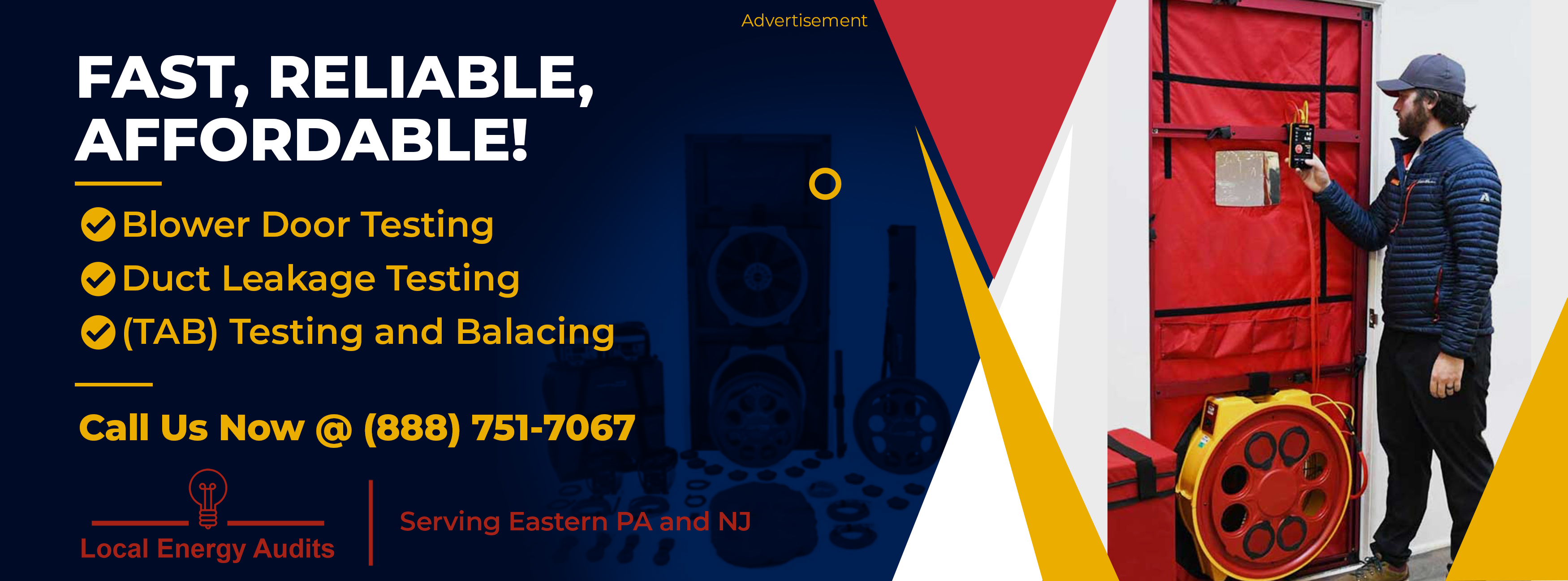Blower Door Test - Philadelphia
Why Consider Blower Door Testing in Philadelphia?
If you're a homeowner in Philadelphia seeking to maximize your home's energy efficiency and comfort, consider a Blower Door Test from PA Energy Code. This diagnostic tool measures the airtightness of your building envelope, revealing unseen air leaks that can significantly impact your energy bills and indoor air quality.

Benefits of Blower Door Testing:
- Reduced Energy Costs: Uncontrolled air leaks can account for a substantial portion of your heating and cooling energy use. A Blower Door Test identifies these leaks, allowing you to target them for sealing, potentially saving you hundreds of dollars annually.
- Enhanced Comfort: Drafty homes can be uncomfortable, with uneven temperatures and hot or cold spots. Addressing air leaks through Blower Door Testing leads to a more consistent and comfortable living environment.
- Improved Indoor Air Quality: Leaks can allow unwanted outdoor pollutants, like pollen and dust, to enter your home. By sealing these leaks, you can significantly improve indoor air quality, especially beneficial for allergy sufferers.
- Extended HVAC System Life: Uncontrolled air leaks force your HVAC system to work harder to maintain desired temperatures. Addressing these leaks can extend the lifespan of your HVAC system and reduce the need for repairs.
- Building Code Compliance: In some cases, new construction in Philadelphia may require a Blower Door Test to verify compliance with local energy codes.

What to Expect During a Blower Door Test with PA Energy Code:
PA Energy Code's certified technicians follow a comprehensive Blower Door Testing procedure:
- Pre-Test Inspection: A thorough visual inspection identifies potential air leaks around windows, doors, plumbing penetrations, and other areas.
- Door Fan Installation: A specialized fan is securely mounted in an exterior doorway to create a controlled pressure differential.
- House Pressurization/Depressurization: The fan creates negative pressure inside the house, drawing in outside air through leaks. Conversely, positive pressure can also be used to identify leaks pushing conditioned air outwards.
- Leak Detection: Specialized equipment is used to pinpoint the location and severity of air leaks. This may include smoke pencils, infrared cameras, and pressure gauges.
- Test Results & Report: Upon completion, PA Energy Code provides a detailed report outlining the test results, identified leaks, and recommendations for remediation.

Taking Action After Your Blower Door Test:
The detailed report from PA Energy Code empowers you to take action and address air leaks in your Philadelphia home. Common solutions include caulking, weatherstripping, sealing around recessed lights and plumbing penetrations, and potentially addressing air leaks in ductwork.
Invest in Your Home's Efficiency with PA Energy Code:
By scheduling a Blower Door Test with PA Energy Code, you're making a wise investment in your Philadelphia home. Improved energy efficiency translates to significant cost savings on your utility bills. Additionally, enhanced comfort, improved indoor air quality, and potential code compliance become valuable benefits.
Contact PA Energy Code Today!
Don't wait to unlock the potential energy savings and comfort improvements in your Philadelphia home. Contact PA Energy Code today by calling (484) 443-1010 to schedule your Blower Door Test and breathe new life into your home's efficiency!




